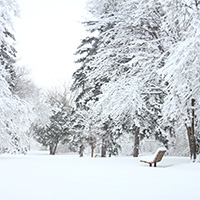
Do your joints seem to hurt more when it starts to get cold out? Can your body sense when the weather is changing? The good news is, you’re not alone! According to the CDC, 1 in 4 American adults have arthritis. Cold weather affects both those with inflammatory arthritis and osteoarthritis.
When it gets colder outside, the barometic pressure (amount of pressure in the atmosphere) drops causing our joints to hurt. The synovial fluid, which acts as a lubricant and shock absorber to keep our joints moving smoothly, becomes thick and hinders its ability of it to do its job.
According to the Arthritis Foundation, cold temperatures can heighten pain, slows down our blood circulation, can cause muscle spasms and can cause the joint to swell, placing more pressure on the nerves that control our pain levels; more swelling equals more pain.
What can we do to help prevent arthritis pain when it is cold out?
- Keep warm
- Heat therapy
- Hot tub
- Hot bath/shower
- Heating pad
- Electric blanket
- Dress the part
- Wear layers!
- Lightweight wool is a good first layer as it traps warm and dry air on your skin.
- A down or fleece vest can keep your body’s core warm.
- Wear accessories such as gloves/mittens and thick socks as the majority of our body heat is lost from our extremities.
- Clothing that provides compression can reduce swelling.
- Wear layers!
- Heat therapy
- Get moving
- Adults with arthritis are encouraged to get at least 150 minutes of moderate-intensity aerobics and two strength training sessions a week.
- Tip: If it is snowy and icy out, walk inside on a treadmill, track, at the mall, etc.
- Adults with arthritis are encouraged to get at least 150 minutes of moderate-intensity aerobics and two strength training sessions a week.
- Eat healthy
- Foods rich in omega-3 fatty acids can help reduce inflammation.
- Examples: fatty fish, nuts and seeds.
- Foods rich in omega-3 fatty acids can help reduce inflammation.
- Maintain a healthy weight
- The more weight you carry, the more stress it puts on your joints.
- Stretch
- Can loosen stiff joints.
- When your muscles are stretched and warmed up, you’re less likely to get injured.
- Make sure you get plenty of vitamin D
- Vitamin D is what we get from the sunlight, in the winter when we aren’t out in the sun as much, we can become vitamin D deficient which is linked with increasing arthritis pain and can contribute to bone loss, which leads to bone damage.
- Eat foods that are rich in vitamin D or take a vitamin D supplement daily.
- Stay safe when venturing outside
- Wear footwear that provides stability and traction.
- Bundling up can warm your muscles which makes them more relaxed and easier to keep your balance.
- Use caution- stay on cleared sidewalks/paths if possible.
- Use assistive devices if needed.
- Over-the-counter pain medications
- OTC medications that contain NSAIDs can help reduce pain and swelling.
Iowa Ortho is here to help those suffering from arthritis pain! Request an appointment today here or call us at (515) 247-8400.
